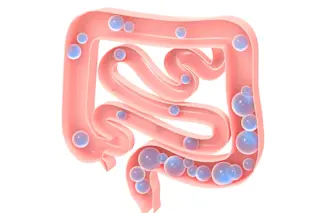Ever stumble off an all-night flight and wonder whether you should be eating breakfast or dinner? Your biological clock may be highly adaptable, but when it’s thrown off-balance, nothing else feels quite right. Our bodies’ circadian clocks – which regulate our hunger, tiredness, digestion and dozens of other biological processes in response to the time of day – are kept in balance by a delicate dance of hundreds of chemicals; each of them influenced by a specific type of environmental factor. And now, a new study suggests that we may be able to set our biological clocks back or forward – a kind of self-induced daylight savings time – depending on what we eat.
Much research has been done on how light affects our circadian clocks – leading to everything from specialized lamps to apps that purport to minimize jet lag. But much less is known about how our diet ...













